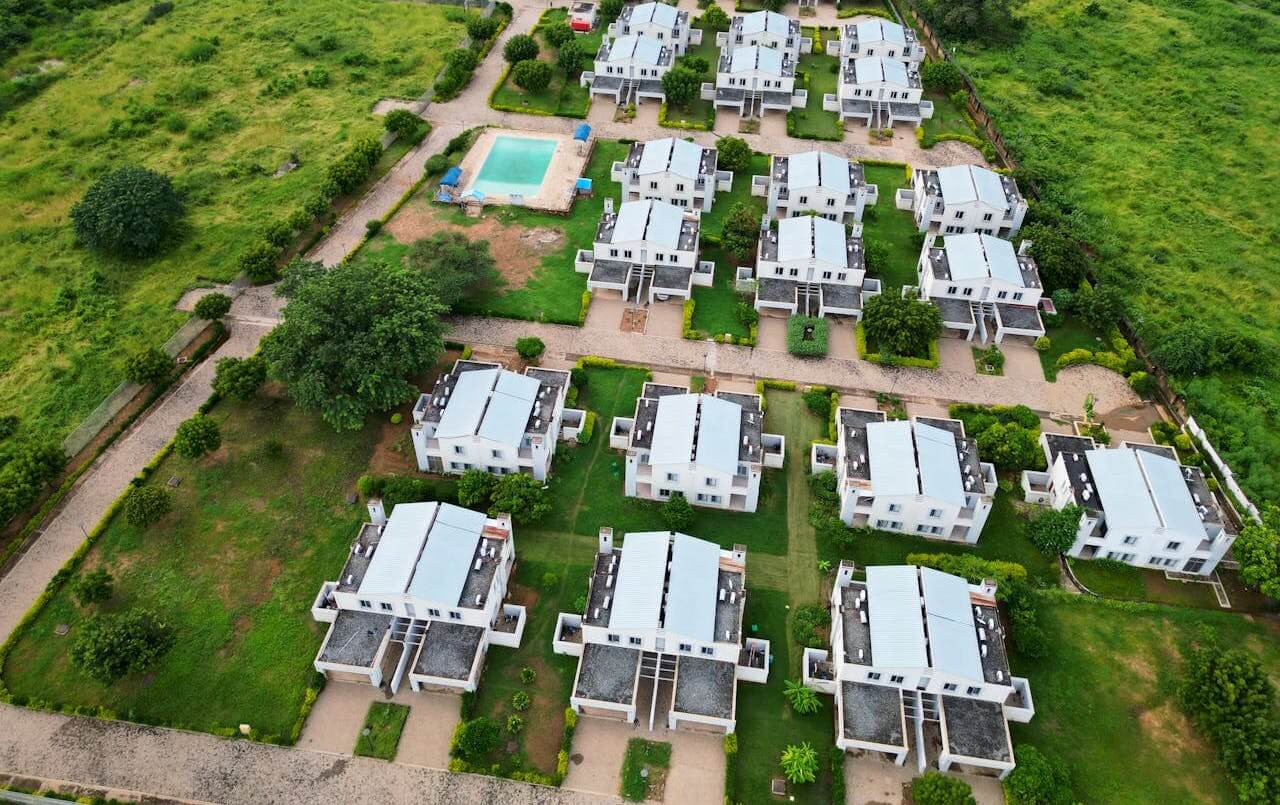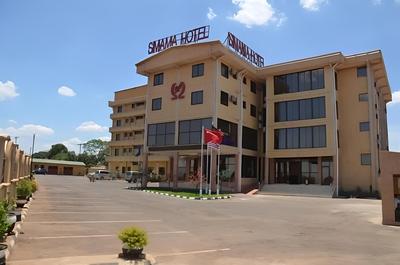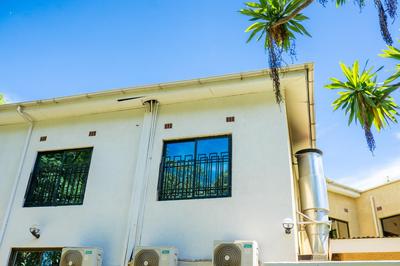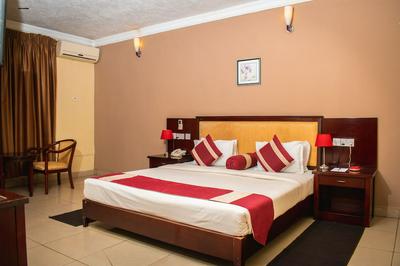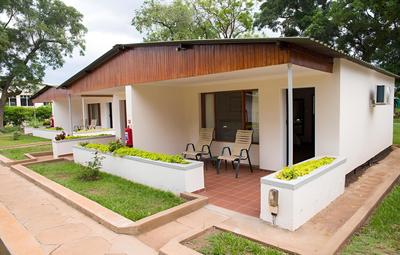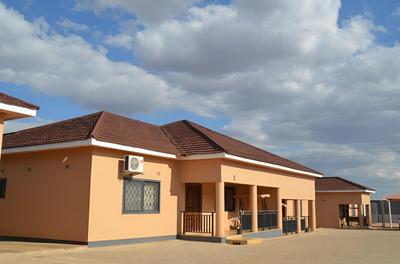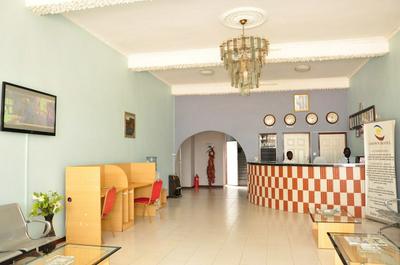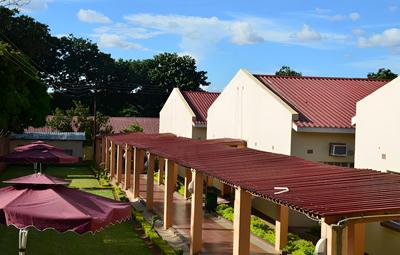When to visit Lilongwe?
Lilongwe, the capital city of Malawi, experiences a subtropical highland climate. The best time to visit is during the dry season, from May to October. This period offers warm, clear days, ideal for exploring the city's outdoor attractions, parks, and markets. In contrast, November to April is the rainy season, characterized by higher humidity and occasional heavy rains. Though travel during this time may be less comfortable, the green landscapes and vibrant flora provide a stunning backdrop for nature lovers.
Summer, from December to February, can get hot, with temperatures often surpassing 30°C (86°F). However, this is when the cultural vibrancy is at its peak, and numerous events take place. Autumn, particularly March to May, is also lovely; it's the end of the rainy season when the countryside flourishes. For those interested in wildlife, visiting during winter allows for optimal game viewing in surrounding parks.
Regardless of the season, prepare for varied temperatures, especially during evenings, and always stay hydrated while enjoying the local culture and environment.
How to get to Lilongwe?
Reaching Lilongwe is quite convenient due to its status as Malawi's main transport hub. The primary gateway is the Kamuzu International Airport, located just 20 kilometers from the city center. It offers direct flights from several African cities and connections to international destinations. Traveling by air is the quickest option, with flights from Johannesburg taking around 1.5 hours.
For those preferring overland travel, there are numerous bus services connecting Lilongwe to major cities like Blantyre and Mzuzu. Buses typically take 3 to 5 hours, depending on the route and traffic conditions. Another option is taking a minibus, which can be slightly faster but is usually less comfortable.
Driving to Lilongwe is straightforward, with well-maintained roads linking it to other urban areas. Car rentals are available at the airport and in the city. Be mindful of road conditions during the rainy season, and always check local advice before setting off.
Tourist activities in Lilongwe
Lilongwe offers a variety of activities suited for different interests. For those who appreciate culture, the city has several museums such as the Malawi National Museum, which showcases the country’s history and art. You can also explore the vibrant Lilongwe Market, where locals sell everything from fresh produce to handmade crafts.
Outdoor enthusiasts will enjoy the expansive Lilongwe Nature Sanctuary, perfect for a day of hiking and birdwatching. The sanctuary features numerous walking trails and a chance to see various wildlife. In the evenings, take a stroll through the Old Town for a mix of colonial-style buildings and modern cafes.
Families can have a great time at the Kumbali Cultural Village, where kids can learn about Malawian traditions through interactive experiences. Lilongwe is also known for its lively nightlife; bars and clubs are scattered throughout the city, particularly in the capital’s nightlife districts. With its blend of cultural experiences and urban excitement, there's something for everyone in Lilongwe.
Events and festivals
Lilongwe hosts numerous annual events that celebrate local culture, music, and art. One highlight is the Lake of Stars Festival, usually held in September, which features performances by local and international artists along the shores of Lake Malawi, just a short distance from the city. This event combines music, food, and stunning beach views, attracting a diverse crowd.
Another significant event is the Lilongwe Arts Festival, typically taking place in April. This festival showcases local artists, craftspeople, and performers, providing an excellent platform for the community’s creative talents. During December, the capital lights up for Christmas celebrations, with various markets and events focused on family activities and community gatherings.
Throughout the year, visitors can also enjoy agricultural fairs and cultural exhibitions, which highlight traditional crafts, foods, and Malawian heritage. Participating in these events offers a unique insight into the vibrant culture of Lilongwe and Malawi.
Family and kids activities
Lilongwe is a family-friendly city with plenty of activities for children of all ages. The Lilongwe Nature Sanctuary is a fantastic place for families, where children can explore nature while enjoying walks and observing wildlife. It's a great spot for picnics and engages kids with the environment.
Another enjoyable venue is the Fun Zone, a family entertainment center featuring games, rides, and play areas. It’s an excellent choice for kids who need to burn off some energy. For a bit of education mixed with fun, visit the Lilongwe Wildlife Centre, which is dedicated to rescuing and rehabilitating animals, making it an ideal learning experience about wildlife conservation.
Additionally, consider a visit to any local cultural performances or craft workshops where kids can learn about Malawian traditions through participation. Whether it’s exploring the outdoors or engaging with local culture, Lilongwe has activities that can delight the whole family.
What to see in Lilongwe?
Lilongwe boasts several attractions that reflect its rich culture and beautiful surroundings. Key places to explore include:
- Malawi National Museum: A pivotal cultural site showcasing Malawian history and traditions through impressive exhibits.
- Lilongwe Nature Sanctuary: An oasis in the city, perfect for nature walks, birdwatching, and connecting with local wildlife.
- Kumbali Cultural Village: Offers visitors a chance to experience Malawian culture, traditional dances, and local cuisine.
- Crafts Village: A unique marketplace where you can purchase handmade crafts and souvenirs from local artisans.
- Old Town: Features colonial architecture, charming streets, and vibrant markets that celebrate local life.
Each of these attractions presents a different aspect of Lilongwe, ensuring that visitors leave enriched and inspired.
Accommodation in Lilongwe
Lilongwe offers a range of accommodation options to suit various budgets and preferences. For those seeking comfort and luxury, several hotels like the Sunbird Capital Hotel and Protea Hotel by Marriott offer upscale amenities and convenient locations. These hotels are great for business travelers and tourists alike.
For mid-range choices, consider guesthouses like the Cedar Place and the Mabuya Camp, which provide a homely atmosphere while remaining budget-friendly. They often offer unique experiences that reflect local hospitality.
If you're traveling on a budget, numerous hostels and budget stays are available, especially around the city center and the Old Town. Prices vary by location and type of accommodation, ranging from $10 for dormitory beds to upwards of $150 for luxury rooms. Additionally, areas like Area 3 are known for their proximity to attractions, making it a strategic place to base yourself in Lilongwe.
Important numbers and information
- Emergency Numbers:
- Police: 997
- Ambulance: 998
- Fire Services: 998
- Tourist Information Centers:
- Located at the airport and major hotels.
- Main Hospitals:
- Kamuzu Central Hospital - Phone: +265 1 750 401
- Airport Contacts:
- Kamuzu International Airport - Phone: +265 1 750 065
- Public Transport Information:
- Buses and minibuses operate regularly; check local schedules.
- Taxi Apps:
- Uber and local services like YAPTaxi are available.
- Currency:
- Malawi Kwacha (MWK) is used. Credit cards are accepted at major establishments, while cash is often preferred for local markets.
Where to eat?
Lilongwe boasts a diverse culinary scene that caters to all tastes. Sample local Malawian dishes such as nsima (a staple made from maize) alongside various stews and grilled fish at eateries like Kondwani Restaurant, known for its authentic flavors.
For those seeking international cuisine, check out places like The Capital Restaurant for a mix of African and continental dishes or the renowned La Caverna, famous for its pizza and casual atmosphere.
Street food is an essential part of Lilongwe's food culture. Don't miss trying local street snacks like samosas and grilled corn on the cob, typically sold in busy areas and markets. Expect to spend $5-$15 per meal, depending on your dining preferences. Whether you’re looking for fine dining or local street eats, Lilongwe has delectable options.
Nightlife – where to go out?
Lilongwe's nightlife offers a blend of vibrant bars, clubs, and entertainment districts. The city comes alive after dark, making it a great spot for socializing. Visit areas like the Old Town and City Centre for popular hangouts. The Fire & Ice Bar is a local favorite, known for its lively atmosphere and social vibe, perfect for starting your night. If dancing is your scene, Club LUX is the place to be, featuring local DJs and themed nights that attract a young crowd.
For a more laid-back experience, check out the MANGO Restaurant and Lounge, which offers a chilled atmosphere with live music and a fantastic cocktail menu. The nightlife is diverse, with options ranging from cozy wine bars to energetic clubs, ensuring a memorable night out in Lilongwe. Embrace the friendly local culture as you mingle with residents and fellow travelers.
Transport and taxis
Transport in Lilongwe is varied, giving visitors multiple options for getting around the city. Public buses are the most economical method, with routes covering major areas; a single ticket costs around MWK 200. Keep an eye on local schedules for the best routes.
Minibuses are also popular and can be more efficient, although they may get crowded. Always confirm your destination before boarding. Taxis are readily available, with drivers often willing to negotiate fares, so it's wise to agree on the price beforehand. Ride-hailing apps like Uber are gaining traction in urban areas, offering a safe and easy alternative.
When using taxis, ensure you choose well-known companies and always communicate the destination clearly. For safety, avoid traveling alone at night and stick to well-lit areas.
- Public Bus Cost: MWK 200
- Taxi Pricing: Negotiable, typically MWK 1,500 and up
- Uber Availability: Growing trend in major areas
Parking and public garages
Driving in Lilongwe presents unique challenges, especially with busy streets in the city center. There are several parking zones, typically well-marked, where you can find space for your vehicle. Most public spaces require payment during office hours, usually costing around MWK 200 per hour.
Public garages are available in key areas but can fill up quickly, particularly during peak times. It’s advisable to arrive early if you want to secure a spot. Always park in designated areas to avoid fines and ensure the safety of your vehicle. Keep an eye on your belongings and avoid leaving valuables in sight to prevent theft.
For long-term parking, inquire about facilities near your accommodation or at the airport if you're traveling; many places offer secure parking options.
Surroundings of Lilongwe
Exploring beyond Lilongwe unveils stunning landscapes and cultural experiences. Less than an hour away is the scenic Nkhotakota Wildlife Reserve, ideal for wildlife enthusiasts interested in safaris and nature walks.
Another great day trip is to Lake Malawi, renowned for its breathtaking beaches and opportunities for water activities like snorkeling and kayaking. It's a tranquil spot to unwind and enjoy the beauty of Malawi’s nature.
For those curious about culture, visit the historical site of Salima, known for its rich traditions and crafts. Each of these nearby destinations offers a unique view of Malawi’s heritage and natural beauty, making them worthy additions to your Lilongwe itinerary.
